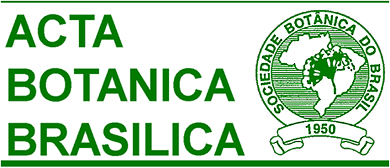ABSTRACT
Seed predation is a natural phenomenon that can occur either before or after dispersal and can significantly reduce the economic value and reproductive potential of plants. The babassu palm (Attalea vitrivir, Arecaceae) is important to rural communities that extract oil from its fruits for a wide variety of uses. We evaluated the predation and germination of A. vitrivirseeds in Pandeiros River Environmental Protection Area (EPA-Pandeiros) in Minas Gerais State, Brazil. Sixty individual plants were evaluated to determine their fruiting patterns. Seed predation and germination were evaluated in the natural environment for eight months for fruits divided into two treatments: scarified and intact. Germination of fruits submitted to these same treatments was also evaluated under greenhouse conditions. Our results indicated that fruiting is continuous in this species and that fruit morphology does not influence either germination or predation. Likewise, fruit scarification did not influence seed germination. Pachymerus cardo (Coleoptera: Chrysomelidae) preferentially oviposited on scarified fruits, but only after their dispersal. The predation rate in the natural environment was 14.6%. Germination was not observed under natural conditions, but reached 33.05% under greenhouse conditions.
Keywords
Arecaceae; Attalea vitrivir; Babassu palm; fruit; seed germination; seed predation

 Thumbnail
Thumbnail
 Thumbnail
Thumbnail
 Thumbnail
Thumbnail


